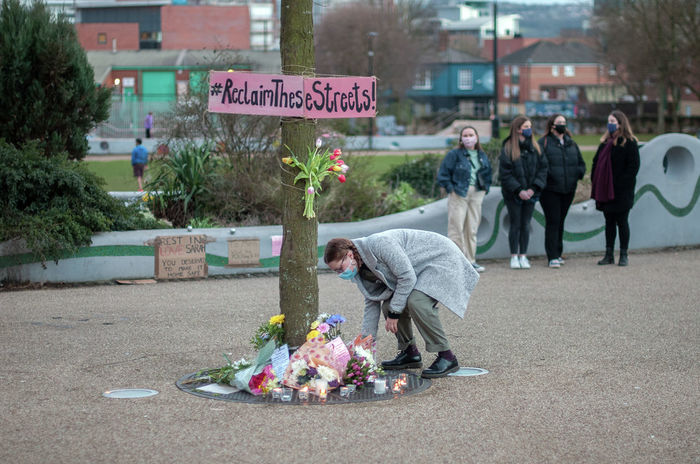Why we must address the victim-blamers amongst us
Drawing on her own personal experiences, Sadie Berry-Firth argues that there is a culture of victim-blaming within the University and wider society that must be urgently addressed

Content Note: This article contains discussion of sexual assault and victim-blaming.
Since coming to Cambridge, I have witnessed a deeply-ingrained misogyny in the form of victim-blaming. This is not an easy topic to write about, but it is close to my heart, and something we have a duty to talk about for all those who have experienced it. But what is victim-blaming?
It is the perception that victims of sexual assault are in any way responsible for the actions of offenders, and it is present both on an individual and institutional level. When someone has been exposed to such traumatic primary violence, there should not be secondary violence from peers and those within the system. Sexual assault is often treated as an abstract topic of discussion, as though the words and opinions of others have no direct consequences. Yet sexual assault is not a spectacle or a subject of debate. There should be no doubt as to who is to blame: it is always the assaulter.
“It is heartbreaking to hear from my peers about a lack of support from those whose job it is to provide this”
Yet not everyone sees it this way. Over recent months, I have observed victim-blaming from peers and on social media, and from those within the system — a system created to help victims, not invalidate their experiences. I would like to hope that this victim-blaming comes from a lack of knowledge rather than a lack of care. But this does not justify the endless comments and judgments that victims of sexual assault face on a daily basis. My sexual assault is not a topic of debate.
How will we ever remove the stigmas surrounding sexual assault unless people understand the dangers of victim-blaming? Phrases such as, ‘You worsened the situation’, ‘You enabled him’, and ‘You could have taken preventative measures’ are just a few that I have encountered in recent months. The very idea that victims have agency in cases of sexual assault undermines any progress made in the last decade on removing stigmas; it is heartbreaking to hear from my peers about a lack of support from those whose job it is to provide this. And there are many others, both within the University and the general public, who have undergone re-traumatisation due to these responses.
“Victim-blaming is a collective issue that we should all strive to solve”
Ultimately, the idea that dressing ‘provocatively’ induces sexual aggression stems from the assumption that what a person wears justifies sexual violence. Research has yet to prove that attire is a significant causal factor in determining who is assaulted, and yet male friends have questioned the length of my skirt. We are supposed to live in a progressive society, and yet this ingrained misogyny continues to invalidate women’s experiences of sexual violence. Our sexual assault is not a topic of debate.
This absurd attitude feeds into cognitive biases, such as the just world fallacy, the idea that good things happen to ‘good’ people and bad things to ‘bad’ people. Perhaps some people find it easier to seek out reasons why someone may deserve a bad thing than to admit that a ‘good’ person could be a victim. It is this attitude which has led to victim-blaming, yet it is not only women who experience this. A 2009 study of male victims of sexual assault in the Journal of Interpersonal Violence concluded that male rape victim-blaming is usually due to social constructs of masculinity, often feeding into homophobia and ingrained misogyny. Victim-blaming is a collective issue that we should all strive to solve.
So, where do we go from here? It is vital that, both on an individual and institutional level, we take steps to hear victims of sexual assault and offer them support. Our experiences should not be invalidated; we should not be told that we had agency during our assault. The wider public must educate themselves, and take the appropriate measures to raise awareness about the dangers of victim-blaming and cognitive biases. I will say it again: sexual assault is not a topic of debate.
 News / Eight Cambridge researchers awarded €17m in ERC research grants27 December 2025
News / Eight Cambridge researchers awarded €17m in ERC research grants27 December 2025 News / Downing investigates ‘mysterious’ underground burial vault 29 December 2025
News / Downing investigates ‘mysterious’ underground burial vault 29 December 2025 Lifestyle / Ask Auntie Alice29 December 2025
Lifestyle / Ask Auntie Alice29 December 2025 Sport / Hard work, heartbreak and hope: international gymnast Maddie Marshall’s journey 29 December 2025
Sport / Hard work, heartbreak and hope: international gymnast Maddie Marshall’s journey 29 December 2025 Interviews / Meet Juan Michel, Cambridge’s multilingual musician29 December 2025
Interviews / Meet Juan Michel, Cambridge’s multilingual musician29 December 2025









